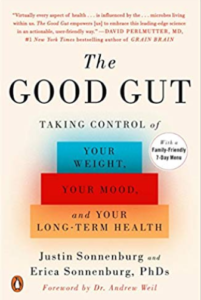Joe Cannon Health podcast episode 16. In this episode, we delve into the microbiome – the billions and billions of bacteria, yeast, and viruses that inhabit our body. It turns out our skin and even our brain also have an ecology of microscopic animals that live with us our whole life. What does the microbiome do and how does it help us stay healthy? Can they help us lose weight? Do probiotic supplements have any side effects? Where do we get these bacteria and how can we naturally improve their diversity? In this episode, you will learn the answers to all these questions and much more.
Episode 16: Microbiome FAQ
Episode Summary
Myth of the week: Colon hydrotherapy and weight loss
- Does it boosts metabolism or help weight loss?
- Auto-intoxication
- Colon Hydrotherapy side effects
- Questions to ask a colon hydrotherapy therapist
Microbiome Questions and Answers
- What is the microbiome?
- What is the “gut”?
- Probiotic definition
- Postbiotic definition
- What do short-chain fatty acids do?
- Is there a best type of bacteria to have?
- how many different types of bacteria do Americans have?
- Fiber vs prebiotics
- How much fiber do we need to eat?
- What is the strain of bacteria?
- Probiotic bacteria strain: Why is this important for dietary supplements?
- Antibiotics vs Probiotics
- Do antibiotics cause people to gain weight?
- Can probiotic supplements help weight loss?
- Can probiotic supplements help weight loss?
- How to naturally improve your microbiome
- Fiber (vegetarian and Mediterranian diets)
- Exercise
- Sleep
- Fermented foods
- Omega 3 fatty acids
What hurts your microbiome?
- artificial sweeteners
- high-fat diet
- don't smoke
- limit alcohol consumption
Quote of the week: Madam CJ Walker
Further Learning
- My favorite gut health book
- Microbiome Test Kits
- Effects of bowel cleansing on the intestinal microbiota.
- International Association of Colon Hydrotherapy
- The microbiome of uncontacted Amerindians
- The role of short-chain fatty acids in health and disease.
- Cost savings of reduced constipation rates attributed to increased dietary fiber intakes: a decision-analytic model
- Smoking and the intestinal microbiome.
- Influence of High-Fat-Diet on Gut Microbiota: A Driving Force for Chronic Disease Risk
- Ketogenic Diet and Microbiota: Friends or Enemies?
- The ketogenic diet influences taxonomic and functional composition of the gut microbiota in children with severe epilepsy
- What probiotics are, what they do (and don’t do), and what we’re still learning.
- Probiotics for weight loss: a systematic review and meta-analysis.
- Effect of Lactobacillus on body weight and body fat in overweight subjects: a systematic review of randomized controlled clinical trials.
- The microbes in your gut may be making you fat or keeping you thin
- Impact of Omega-3 Fatty Acids on the Gut Microbiota
- Gut Microbiota from Twins Discordant for Obesity Modulate Metabolism in Mice
- Weight gain by gut microbiota manipulation in productive animals.

[…] all the talk these days about how to have a happy gut, add D to the list. Some research suggests it can alter the composition of the microbiome – […]